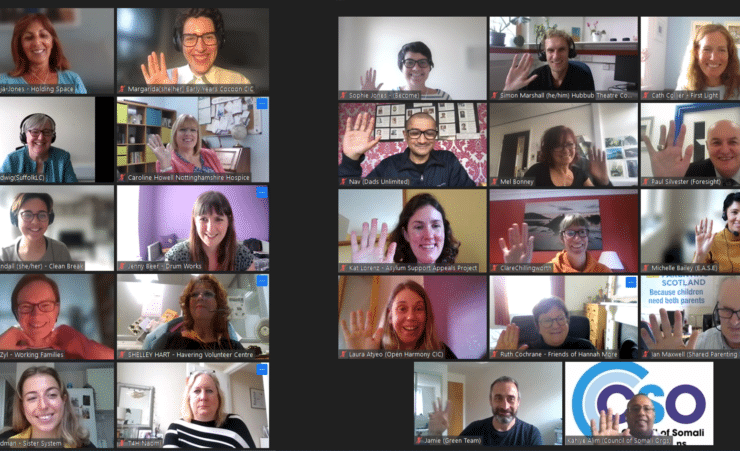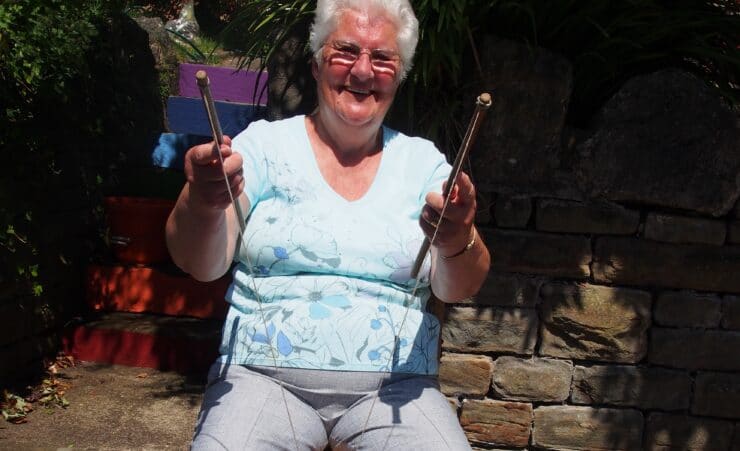
More than a paper exercise: Open and Trusting Accountability
As all grant-seeking organisations know, reporting can be a surprisingly time-consuming task. An exercise a few years ago found that collectively we spend over 1.5 million hours just telling grantmakers what we’ve done with their funding. So it was with some excitement that, this year, we turned the model on its head – asking funders to report to charities on their progress towards being Open and Trusting Grantmakers.
In February 2021, we had invited funders to sign up to IVAR’s Open and Trusting community, as a way of holding onto the positive changes to practice that had so quickly emerged in the wake of Covid-19: grants becoming unrestricted, application processes simplified, and reporting reduced.
From the start, we were keen for this to be more than a paper exercise, and avoid the risk of rhetorical adoption of our eight open and trusting commitments. Now, 70 funders have participated in a ‘peer review’. We asked them all to complete a self-reflection form, and then to attend a Zoom meeting where they spent an hour being held to account by two charity leaders and a fellow funder, and an hour helping to review a peer’s practice.
Unsurprisingly, there was a lot of nervousness in the lead-up to these meetings – from charity reviewers, who were preparing to lead conversations with curiosity, empathy and challenge. From funders, who were choosing to put themselves in the hotseat. And from ourselves at IVAR, as we stepped into a slightly different space, beginning to push funders to go further in their open and trusting practice.
Through the introduction of this new and different approach to accountability, we’ve learnt a lot about Open and Trusting Grant-making – for example, two of the commitments have certainly been easier to implement:
- We will enable charities to respond flexibly to changing priorities and needs
- We will not waste charities’ time
And two have been more difficult:
- We will commit to light-touch reporting
- We will act with urgency
But the main reflection that shone through the review discussions has been the value of space for grantmakers and grantseekers to come together for a collaborative conversation – where the question of funding is, as far as possible, off the table.
Funders took away clear actions:
I’m going to steal an idea from another funder and, when we receive a report from our Strategic Partners (grantees), I’m going to write them a brief report about what we thought about the contents of their report.
Millfield House
It was a really useful opportunity to look at my own practice – and be challenged on it. But almost more useful listening to another funder – there were great ideas there that I’d never thought of and wouldn’t have got anywhere else, things I’ll definitely be adopting just as soon as I can.
Wembley National Stadium Trust
At Corra we are fully committed to open and trusting grant-making, prior to the IVAR peer-led session we had just published our annual open and trusting report reflecting on our own assessment of our commitments. The session felt like a conversation with old friends, the trust to be candid with each other while being supportive and sharing ideas and wisdom. The session will help us consider both practical measures and philosophical aspects of our approach. A light bulb moment came when challenged by a question ‘what is the value of a funder relationship? For Corra it will be important for us to ensure we continually offer clarity on what we mean and how we offer a valuable, proportionate relationship to applicants and grantholders across the different funding programmes we deliver.
Corra Foundation
And charities felt empowered to ask for more:
I’ll go for core/unrestricted funding rather than project-based funding as it’s dispelled my perception that the former is much harder to attain.
Open Harmony CIC
I’ll offer direct feedback, recognising that funders also wish to improve and learn. Their role is not to make life harder for charities.
Woodcraft Folk
The process reinforced that charities and funders are working towards the same goals and will best achieve them through collaboration – being able to ask for what we need rather than what we think we might be able to get, to open up about our issues rather than seeing this as a sign of weakness, and to share our frustrations as a positive step to improving the funding landscape.
The Green Team
Following these peer reviews, we’re working with grantmakers to refresh their commitments to Open and Trusting – and we’ll be publishing these to mark the second anniversary of the initiative in February 2023. Over the next couple of months, we’ll also be digesting everything we’ve heard and turning it into a programme of support, which we’ll be sharing at an event with the Open and Trusting community on 16th March.


